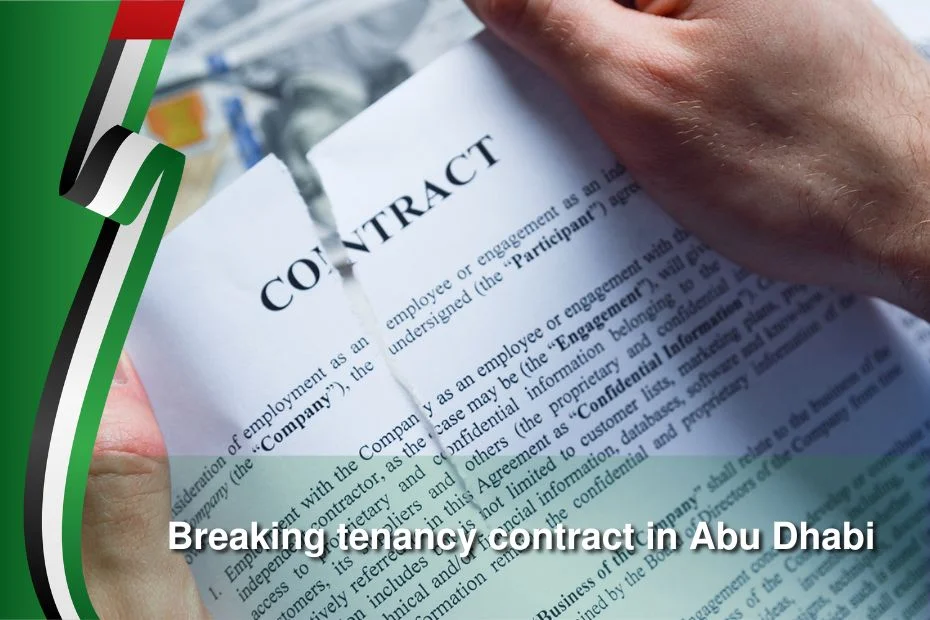Breaking tenancy contract in Abu Dhabi is a significant decision that requires careful consideration of legal requirements and procedures.
Whether you’re a landlord or a tenant, it’s essential to understand your rights and responsibilities in this process.
In this article, we’ll provide essential information on how to terminate a tenancy agreement in Abu Dhabi while ensuring compliance with the law.
Contact Al Mulla Law Firm in UAE. Click the WhatsApp icon below or go to the Contact Us page. Locations: Dubai, Abu Dhabi and Ras Al Khaimah.
Table of Contents
Breaking Tenancy Contract In Abu Dhabi
In Abu Dhabi, the landlord or the tenant can terminate a tenancy agreement. However, there are specific rules and procedures to follow:
- Notice Period.
Both parties must give at least 90 days’ notice before terminating the agreement. This notice period allows both parties time to make necessary arrangements. - Valid Reason.
If the landlord intends to terminate the agreement, they must provide a valid reason. This reason should comply with Abu Dhabi’s tenancy laws.
Where to Find More Information.
To navigate the process of breaking a tenancy contract in Abu Dhabi and to ensure that you are well informed about your rights, you can refer to the following resources:
- Abu Dhabi Judicial Department.
The Abu Dhabi Judicial Department provides information on the emirate’s tenancy agreement laws and regulations. You can visit their website or call their customer service hotline at 8002354. - Abu Dhabi Municipality.
The Abu Dhabi Municipality enforces the Abu Dhabi Tenancy Law. You can visit their website or call their customer service hotline at 800555. - Department of Urban Planning and Municipalities.
The Department of Urban Planning and Municipalities regulates the real estate sector in Abu Dhabi. You can visit their website or call their customer service hotline at 800555.
By familiarizing yourself with the Abu Dhabi Tenancy Law and knowing where to find more information, you can protect your rights as a tenant or landlord and ensure a positive experience.
FAQs about breaking tenancy contract in Abu Dhabi.
For expert guidance and legal assistance in handling tenancy contract cases in Abu Dhabi, Al Mulla Lawyer & Legal Consultant is your best choice.
With a wealth of experience and knowledge in Abu Dhabi’s real estate and tenancy laws, Mr. Al Mulla can provide you with the legal support you need for a smooth and hassle-free process.
Contact Al Mulla Lawyers today! Click the Whatsapp icon below or visit our Contact Us page.
Find us at these locations:
– Dubai: Deira, Port Saeed, Street 8, City Avenue Building, Office 705-708.
– Abu Dhabi: Corniche Street, Golden Tower, Office 22.
– Ras Al Khaimah: Al Nakheel, Al Maamoura Building (Emirates NBD Bank Building), Fourth Floor.
Learn about Abu Dhabi Property Law UAE and the Crucial Clauses in Lease Agreement UAE. Also, read about the Complaint Against Landlord in Abu Dhabi and Early Termination Of Tenancy Contract In Abu Dhabi 2024.
A law graduate and legal writer focusing on UAE law, he became known for his ability to clarify complex legal concepts through his writings. His work simplifies the intricacies of the legal landscape in the Emirates, helping both locals and expatriates navigate their legal concerns.
